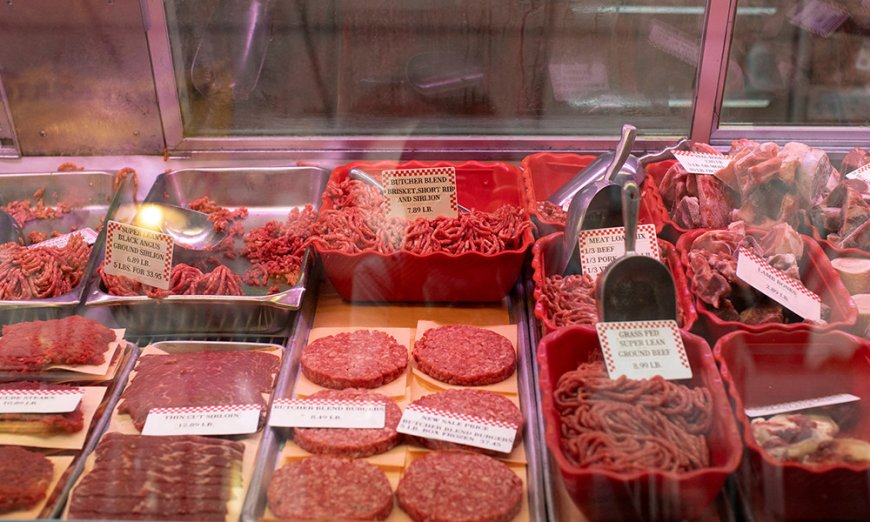Trump lowers tariffs on beef, coffee, and several other food items amid growing concerns over rising inflation
The new exemptions — applied retroactively from midnight on Thursday — represent a significant shift in Trump’s stance.

U.S. President Donald Trump on Friday reversed course on trade policy, rolling back tariffs on more than 200 food products — including everyday staples such as coffee, beef, bananas, and orange juice — amid rising anxiety among Americans over soaring grocery bills.
The new exemptions, applied retroactively from midnight on Thursday, mark a notable turnaround for Trump, who has repeatedly argued that the broad import duties he introduced earlier this year are not driving inflation.
Asked aboard Air Force One about the decision, Trump acknowledged that the tariffs “may in some cases” raise prices, but maintained that the United States has “virtually no inflation.”
His retreat comes as Democrats notch several wins in state and local elections in Virginia, New Jersey, and New York City — races where affordability and high food prices featured prominently with voters.
Trump also told reporters that he intended to press ahead with a $2,000 payment to low- and middle-income Americans next year, funded by tariff revenue. “The tariffs allow us to give a dividend… Now we're going to do a dividend and we're also reducing debt,” he said.
On Thursday, the administration announced preliminary trade agreements that, once finalized, will eliminate tariffs on selected foods and other imports from Argentina, Ecuador, Guatemala, and El Salvador. Officials said they hope to conclude additional deals before year’s end.
Friday’s exemption list includes more than 200 items commonly purchased by U.S. households — from oranges, acai berries, and paprika to cocoa, food-production chemicals, fertilizers, and even communion wafers — many of which have seen double-digit price increases over the past year.
According to a White House fact sheet, the move follows “significant progress” in securing more balanced bilateral trade terms. Trump determined that some food items could be exempted because they are not grown or processed domestically, coupled with the recent completion of nine framework deals, two final trade agreements, and two investment pacts.
CPI data shows ground beef was nearly 13% more expensive in September, and steak prices were up almost 17% — the sharpest increases in more than three years, last observed when inflation peaked under former president Joe Biden. Despite being a major beef producer, the U.S. continues to face a cattle shortage that has kept beef prices elevated.
Banana prices rose around 7%, while tomatoes increased roughly 1%. Overall, the cost of food consumed at home climbed 2.7% in September.
Industry groups largely welcomed the tariff rollbacks, though some lamented products left off the list.
“This should help consumers — making their morning coffee more affordable — and support U.S. manufacturers relying on these inputs,” said Leslie Sarasin, president of the FMI–Food Industry Association.
But Distilled Spirits Council president Chris Swonger criticized the continued tariffs on European and U.K. spirits, calling it “yet another blow to the U.S. hospitality industry” as the holiday season begins. “Scotch, Cognac and Irish whiskey are value-added agricultural products that cannot be produced in the United States,” he said.
Asked whether more changes were coming, Trump replied, “I don’t think it’ll be necessary,” describing the move as a “little bit of a rollback.” He added that while coffee prices had been high, “they’ll be on the low side in a very short period.”
Shift Toward Affordability
Trump has disrupted global trade norms by imposing a 10% baseline tariff on all imports, on top of various country-specific duties. Recently, he has placed affordability at the center of his messaging, blaming remaining cost pressures on policies enacted under Biden rather than on his own tariffs.
Economists, however, say that import duties have contributed to higher grocery prices and warn that costs could climb further next year as companies begin fully passing on tariff-related expenses.
Representative Richard Neal, the top Democrat on the House Ways and Means Committee, accused the administration of “putting out a fire they started.”
“The Trump Administration is finally admitting publicly what we’ve known all along: Trump’s trade war is raising costs on Americans,” Neal said, noting that inflation has risen and manufacturing has contracted consistently since the tariffs were imposed.
What's Your Reaction?






















































































